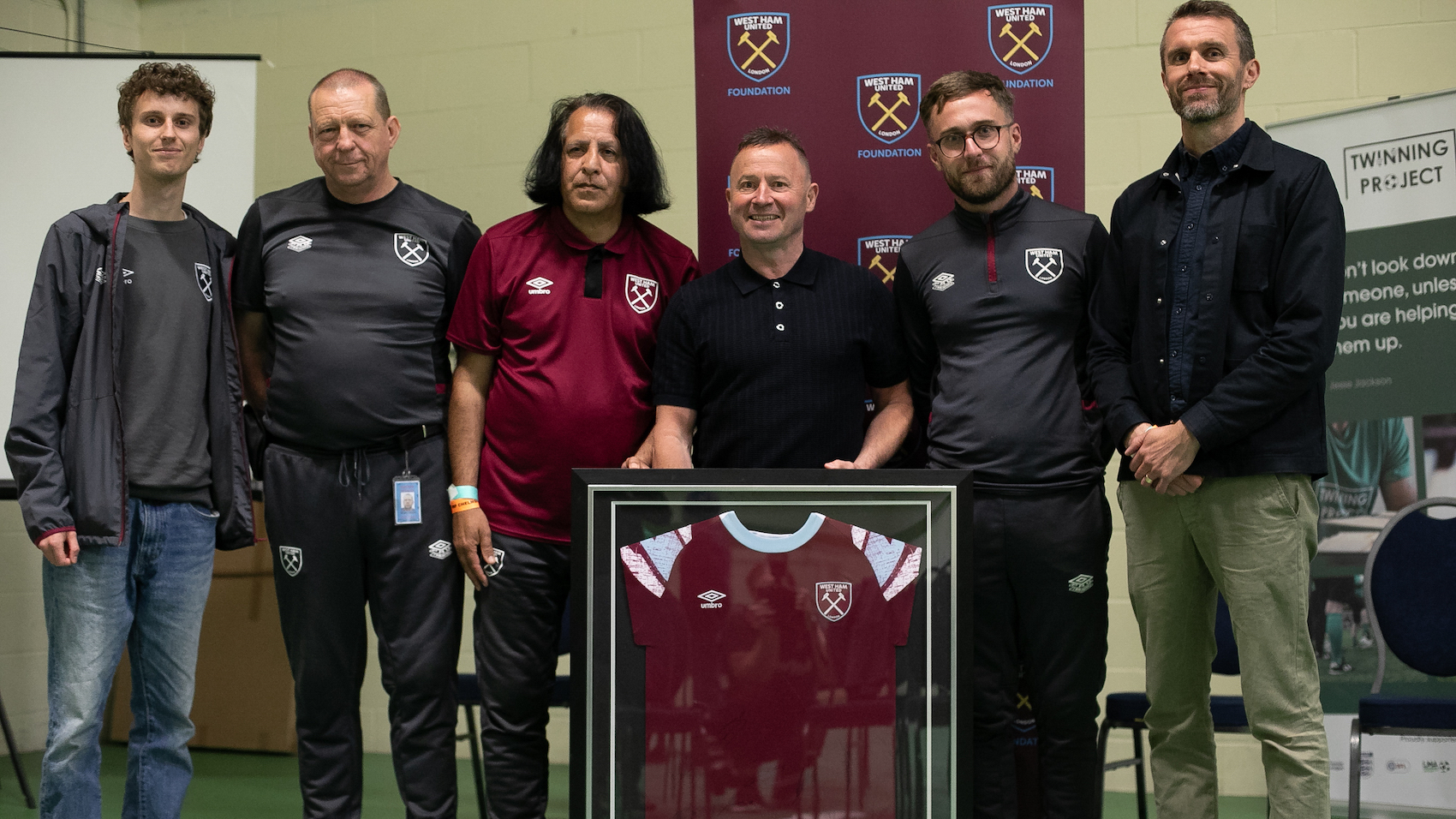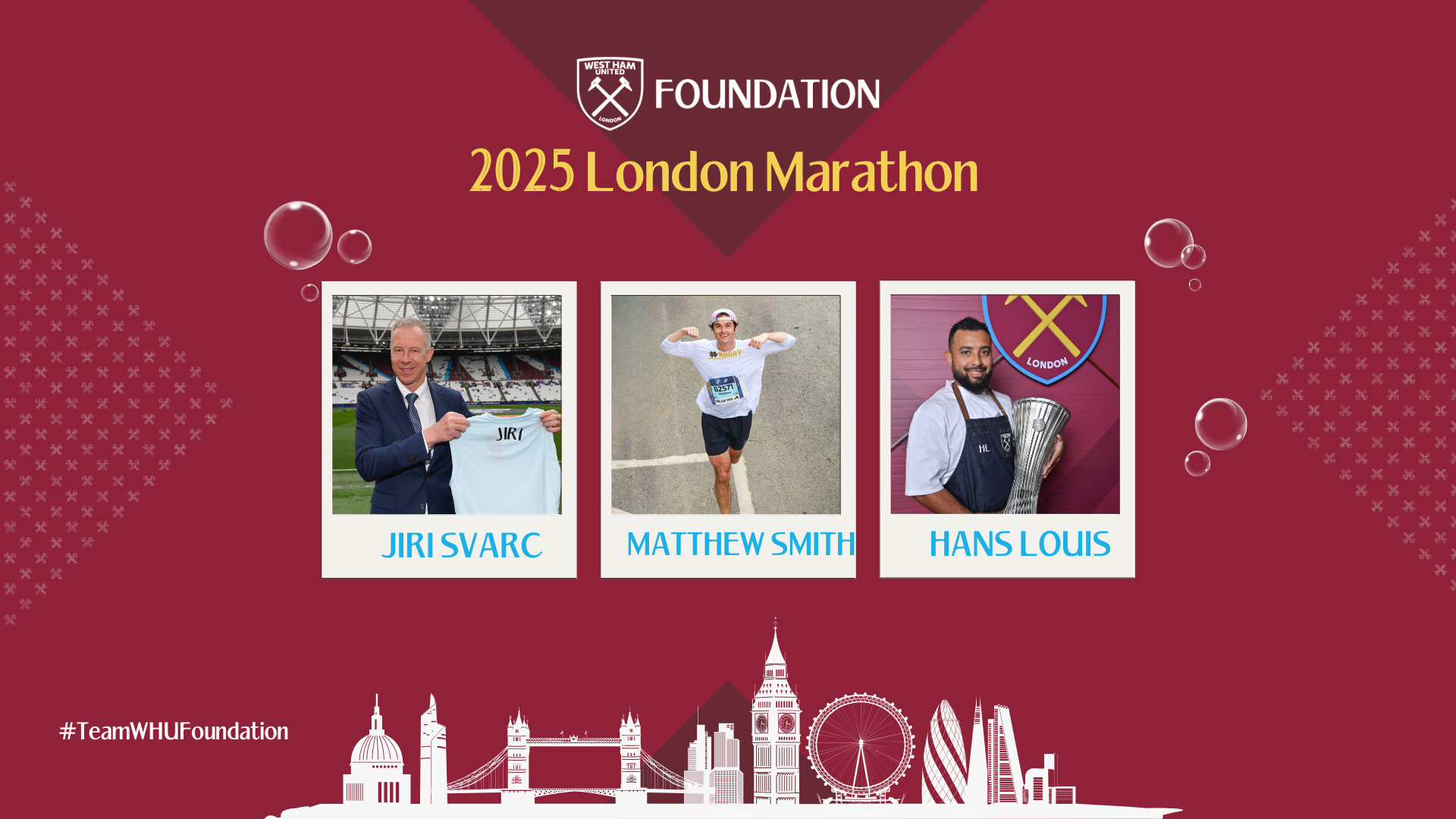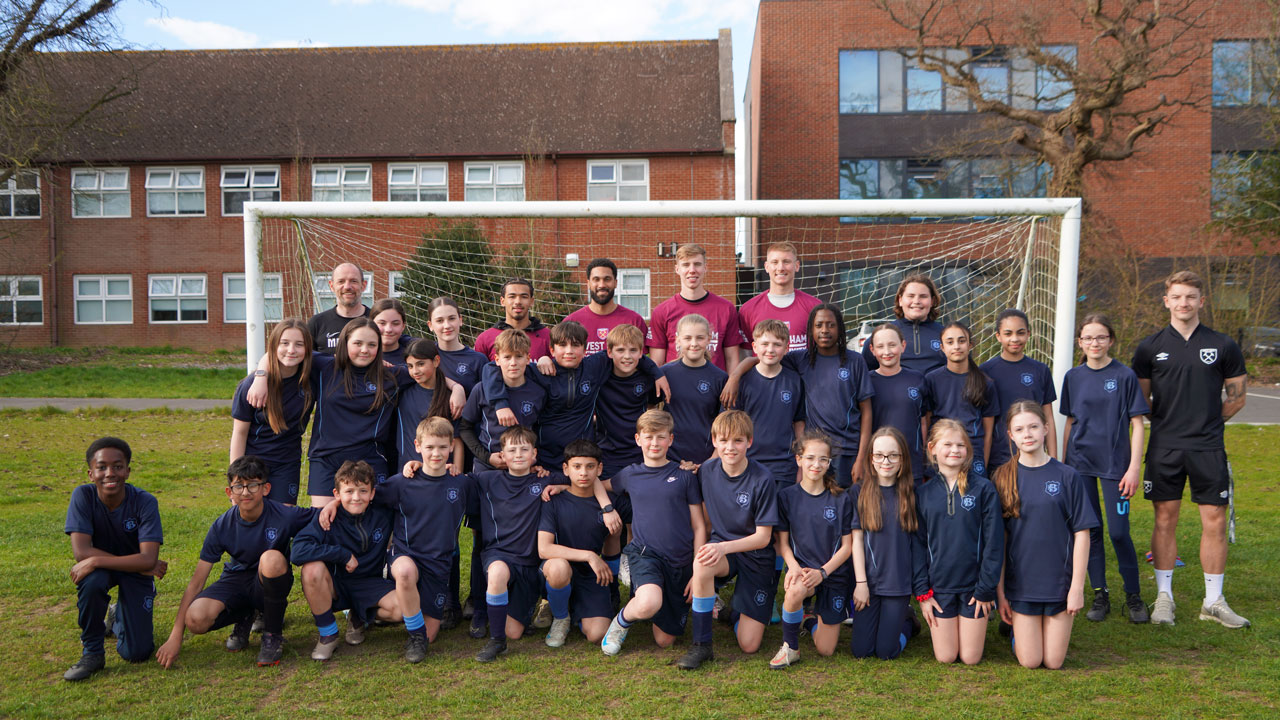One of the West Ham United Foundation’s more unique community initiatives, the Twinning Project is a six-week programme which sees football clubs nationwide twinned with their local prisons to deliver coaching qualifications in the hope of reducing reoffending rates upon prisoners’ release.
As one of the first football clubs to adopt the programme back in 2019, the WHU Foundation was entrusted with piloting a scheme which introduced English literacy qualifications to the curriculum.
To mark the graduation of yet another cohort, former West Ham United midfielder Mark Ward was invited to HMP Chelmsford to conduct a guest speech to the inmates and present them their qualifications.
The ex-versatile winger is part of Hammers folklore having featured in every minute of West Ham United’s most successful season in the top flight in 1985/86, challenging Liverpool and Everton for the title right until the final week, ultimately finishing third.
Despite his successes on the pitch, Ward has faced significant challenges off it. Embroiled in a criminal drugs investigation which saw him serve four years in prison, Ward’s experiences resonated deeply with those lived by the participants on the programme.
“So many people don’t plan for life upon release,” said Ward. “Their circumstances on the outside usually determine if they will reoffend. Whether they have a roof over their head and support.
“I know jobs are hard to come by, especially in this day and age, but programmes like these show that organisations such as your local football club are there to help.”
Now in his role as an ambassador, Ward was only too pleased to meet the Foundation's Twinning Project participants and discuss life as a professional footballer and the adversity of life behind bars.
“I would like to thank the Club and the Foundation for the invitation,” he said. “When you’re down, you need help. West Ham and my other former clubs never turned their back on me. I got tremendous support from them. To hear people say, ‘I’m here for you when you’re in there, and here for you when you’re out’; there’s nothing more reassuring.”
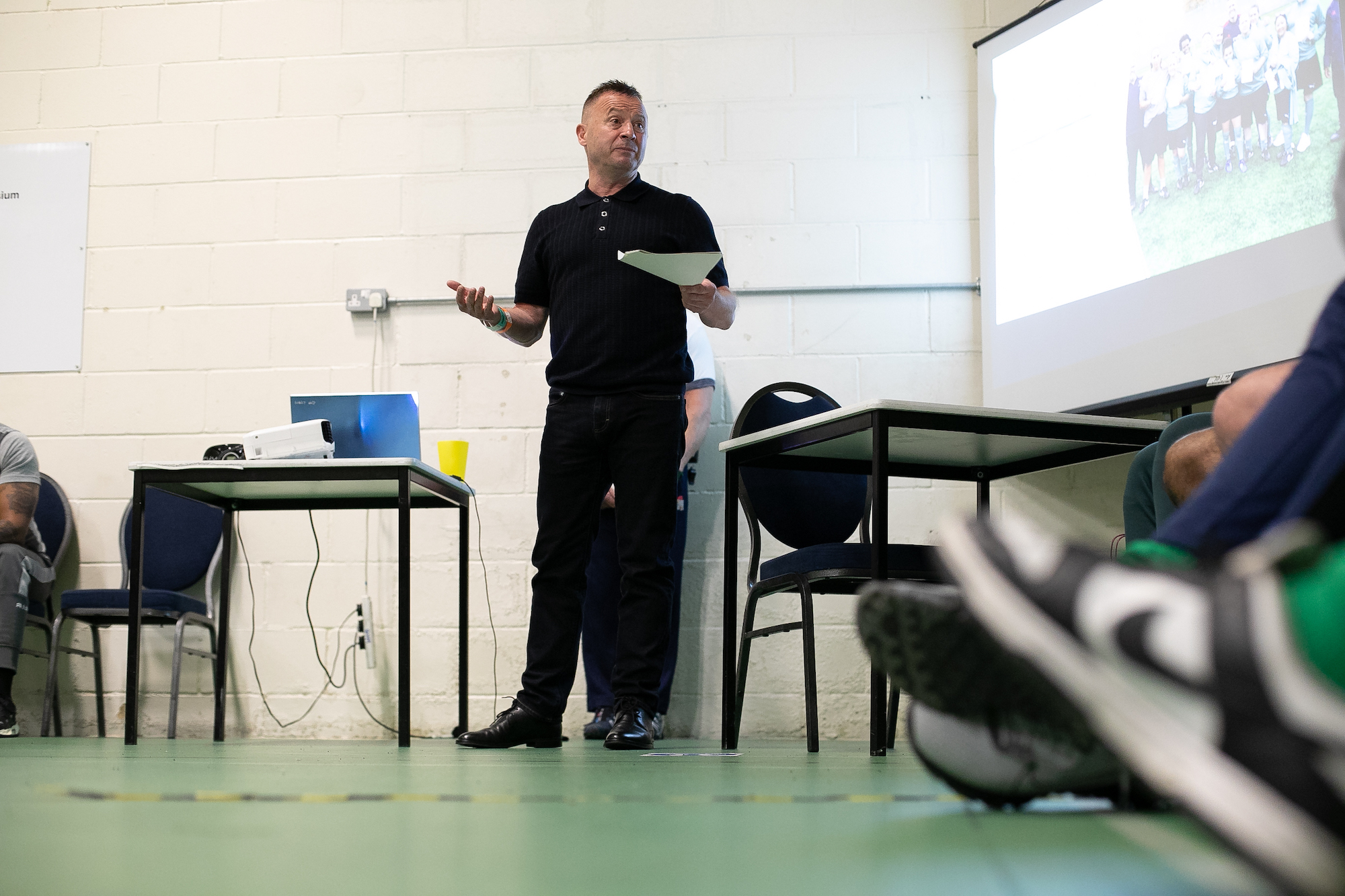
As Ward remarked, employment and opportunity are the primary drivers of purpose and value, and therefore serve as a huge indication of whether someone will reoffend. According to a Prison Reform Trust report, 63 per cent of those who serve short sentences reoffend within a year of release.
“I think it’s crucial in a prison environment to work towards a target,” he continued. “Give yourself something to focus on and dedicate your energy towards. When I was in HMP Kirkham, I volunteered in a church in Preston and worked on a sports science qualification, similar to what the Foundation is doing here. It’s crucial to keep the mind occupied, so it’s great that the Foundation is delivering this programme for the inmates.”
By engaging the inmates in these activities, providing them with qualifications, and offering support on the outside, WHUF Employability Manager Rashid Abba hopes the Twinning Project will help reduce reoffending rates.
He said: “It really is such an impactful programme. Providing individual support and teaching them soft skills such as working as a team will help break down barriers and empower them.
“Upon release, with our network of partner organisations, we can put them in touch with a local club and support them through safeguarding and first aid qualifications. There are examples of people getting released and setting up their own local grassroots club.
“Seeing how our current cohort has grown in confidence, worked as a team as well as demonstrated leadership has been very inspiring.”
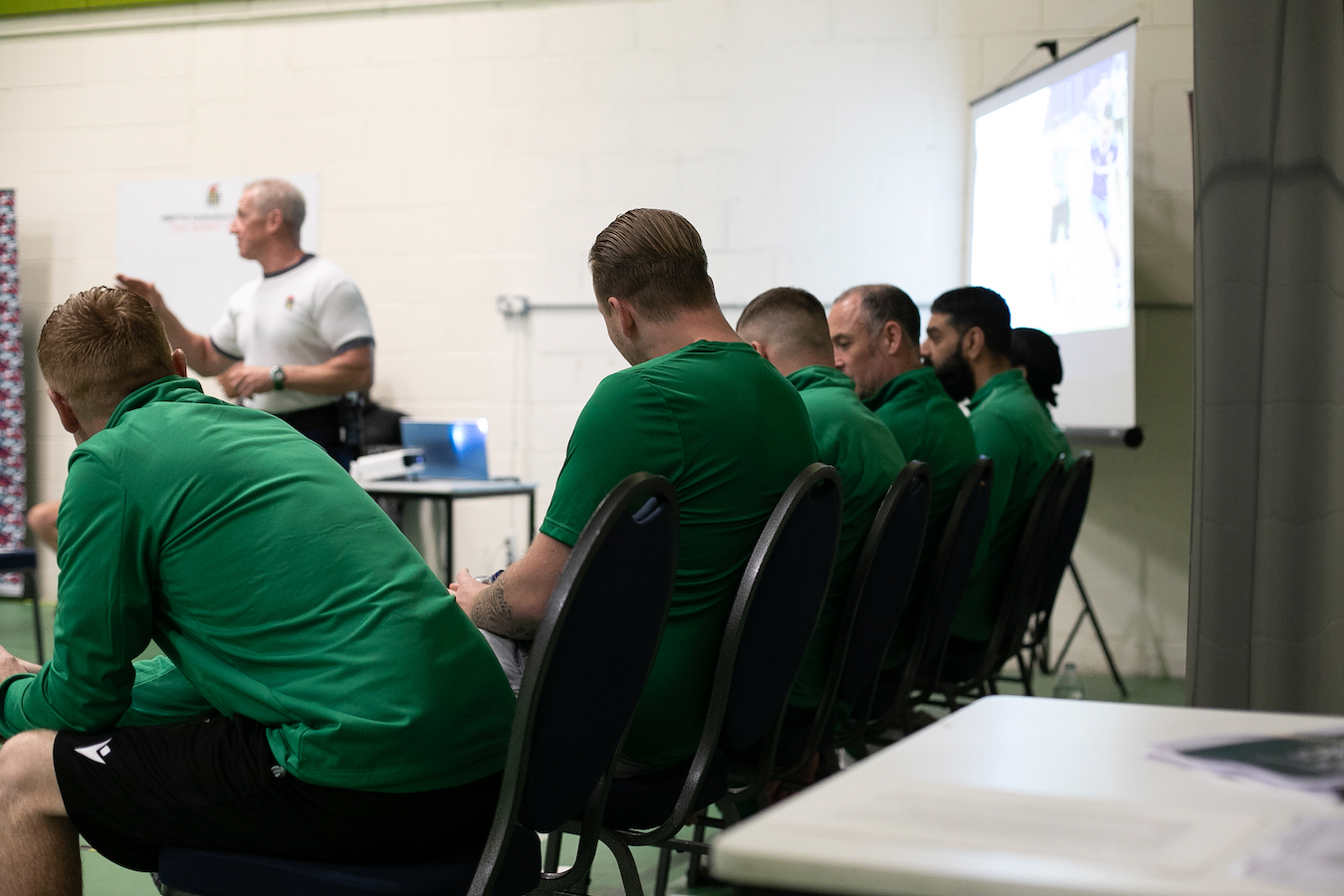
With 52 per cent of male prisoners having no qualifications prior to custody, Head of PE Staff at HMP Chelmsford, Stephen Hallahan, underscored the importance of gaining two accredited qualifications.
He said: “It’s a very challenging environment to deliver education, so using football as a hook to engage the inmates is extremely useful. A lot of them have left school early or haven’t got any qualifications. They should be very proud of what they have achieved over the last six weeks.”
The Twinning Project sessions offer a welcome break from the routine of prison life, providing participants with a sense of purpose and a constructive outlet for their energy.
“The programme has improved my communication skills and has really encouraged me to think outside the box,” said one of the most recent graduates. “In a prison environment, inmates usually keep themselves to themselves. But with this programme, you feel part of a team, all achieving a common goal. It’s been great gaining structure and routine to my days.
“I think this experience will help me in future as a coach in terms of being more patient; giving people time to learn. Education isn’t always one bite of the cherry. If you don’t pass the first time, there’s always a second chance.”
Commenting on the relationship building with the WHU Foundation staff, he added: “You spend six weeks with them. They help you through your lowest moments. With the communication restrictions of a prison environment, you sometimes enter the classroom without a release and the staff notice that. The attention and care they’ve shown is second to none. If I’m lucky enough to coincide with them on the outside, I’ve got a friend for life.”
Reflecting on the graduation and the programme as a whole, Twinning Relationship Lead Farhad Olaleye concluded: “By using the power of sports, we are providing participants with the skills, discipline and support they need to reintegrate into society successfully. This initiative not only fosters personal growth but also underscores the impact that collective community efforts can have on changing lives for the better.”
